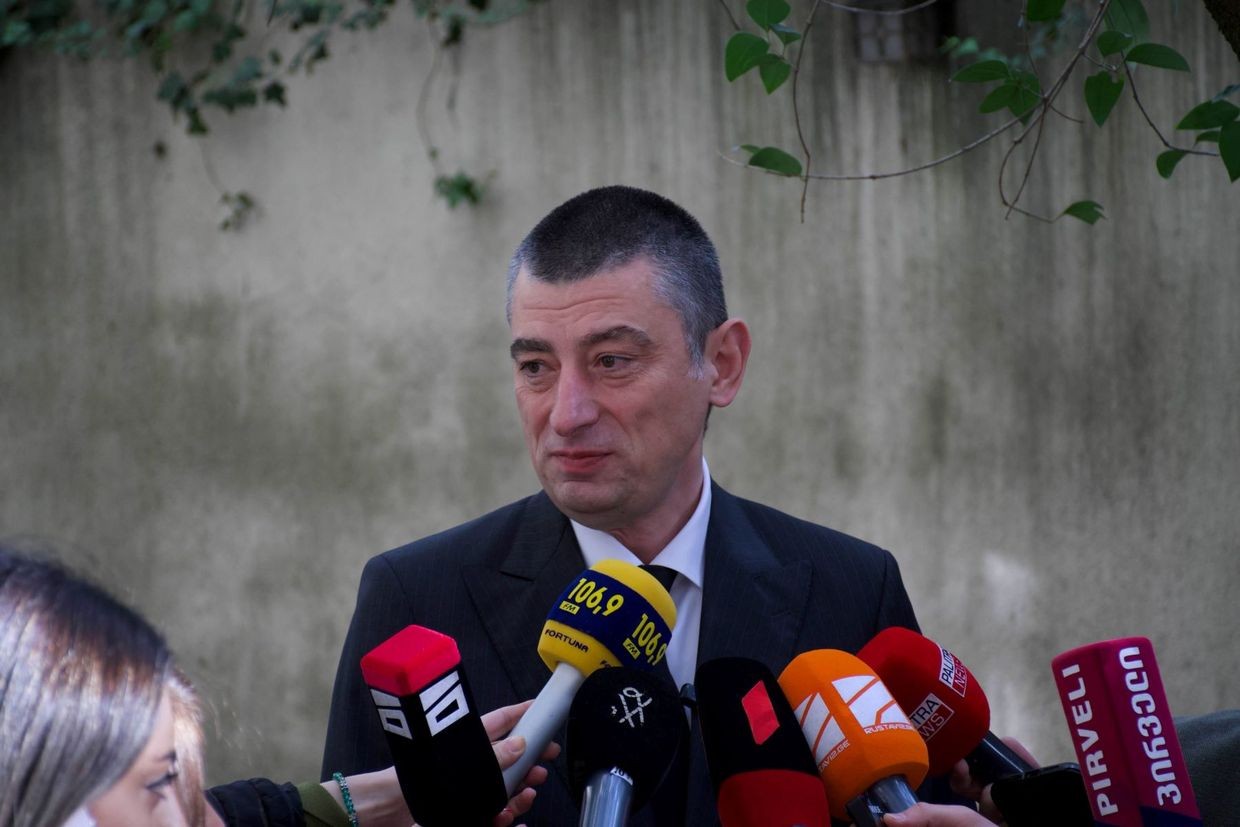Georgian Dream will revoke the mandates of Gakharia’s MPs from the opposition For Georgia party

Georgian Dream’s parliamentary leader Mamuka Mdinaradze has stated that the MPs from former Prime Minister Giorgi Gakharia’s party, who have boycotted parliamentary proceedings but have not officially resigned their seats, will have their mandates revoked.
Mdinaradze briefly addressed the topic in response to a question during an interview with pro-government media outlet Rustavi 2 on Wednesday, referring to parliamentary regulations.
Following the disputed 2024 parliamentary elections, which were marred by major irregularities, all opposition parties refused to take up their seats in parliament.
Gakharia’s For Georgia party did the same but, unlike other parties, it did not formally renounce its 12 parliamentary mandates, instead refraining from attending sessions. Gakharia explained this decision as an effort to preserve the party’s ‘political independence’, specifically to ensure that it could retain its budgetary fundings — which are allocated to political parties based on election results and the number of parliamentary mandates — and not become reliant on ‘some bankers or financial groups’.
Under Georgian law, if a party renounces its parliamentary mandates and requests removal from the list, it loses its state funding.
In a comment made on Wednesday, Mdinaradze likely alluded to the parliamentary rule that stipulates a member’s term can be terminated early if they miss over half of the sessions. Parliament’s spring session concludes on the last Friday of June — 27 June in this case.
Mdinaradze emphasised, however, that 12 other members of Gakharia’s party will still have the option to enter parliament if they ‘choose to do so’.
The day prior, on Tuesday, Gakharia once again confirmed his party’s position on entering parliament.
‘As for entering the XI convocation of the Georgian Parliament, today we are boycotting it and we are not entering’, he added, noting, ‘if something changes [...] we are not hiding, we are not sneaking around, we don’t do anything in silence’.
According to the official results of the 2024 elections, opposition parties won 61 out of the 150 parliamentary seats. However, in February, the ruling Georgian Dream party revoked the mandates of 49 MPs from Unity – National Movement, Coalition for Change, and Strong Georgia, who had earlier appealed to the Central Election Commission (CEC) to annul their lists, expressing distrust in the election results.
After that, Georgian Dream and its satellite parties remained in parliament, along with Gakharia’s 12 deputies, who did not attend sessions. As a result, parliamentary work is effectively carried out only by the ruling party and its allies, who pass laws without any obstacles — including restrictive legislation targeting civil society, the media, and the political opposition.
The official results of the parliamentary elections gave the ruling Georgian Dream party a majority with 54% of the vote. However, local media, observer groups, and opposition politicians have documented widespread vote rigging by the ruling party and the institutions it controls, which they argue resulted in a favourable outcome for Georgian Dream.
The elections were followed by protests across the country, especially after Prime Minister Irakli Kobakhidze’s announcement in late November 2024 that the government was suspending Georgia’s EU membership bid until 2028.











